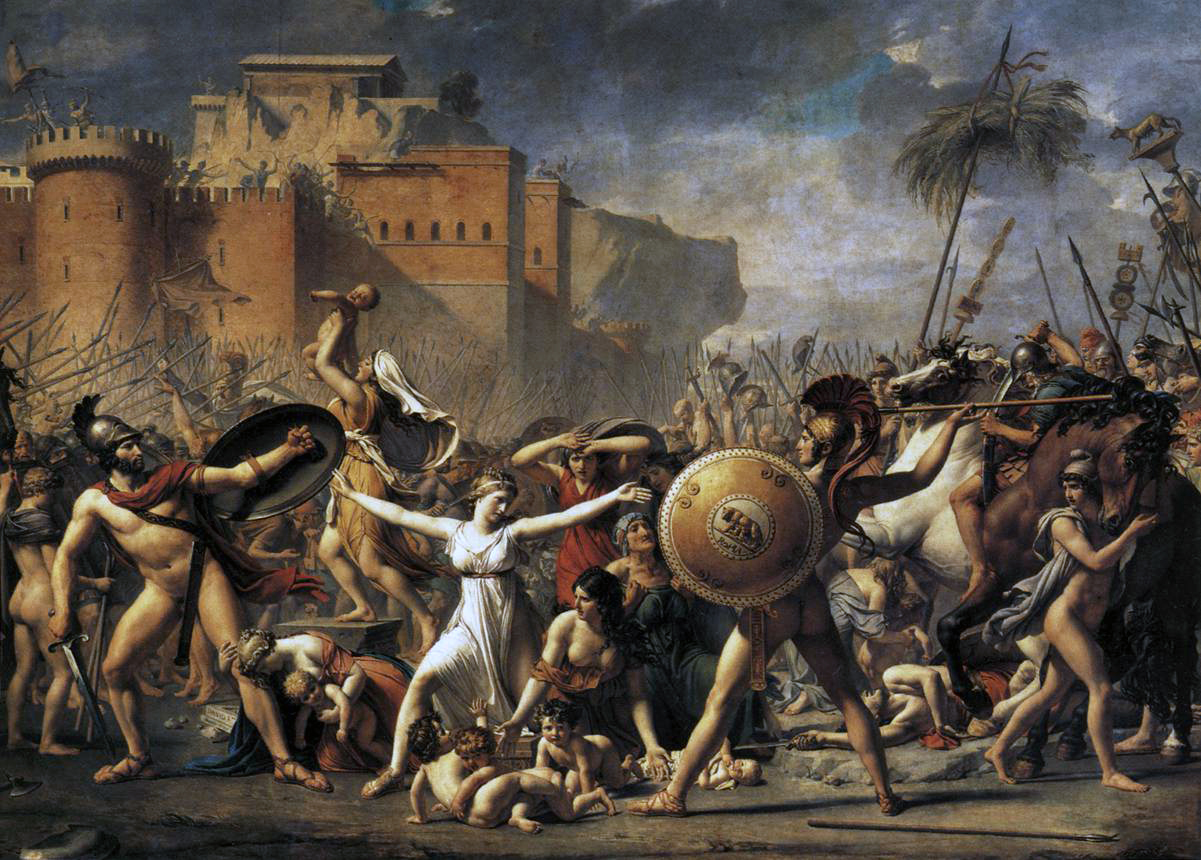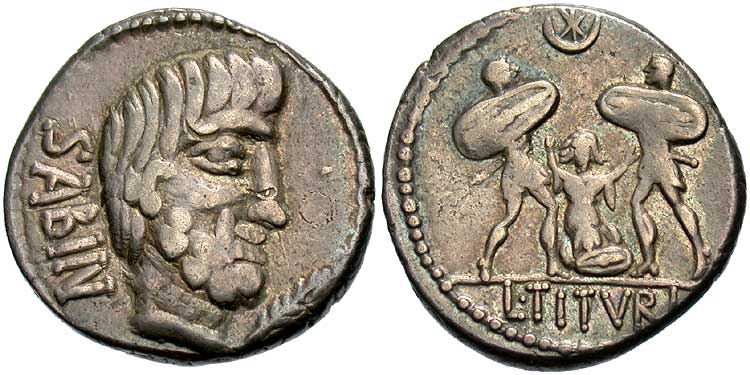In the fifth year of Tatius’ joint reign with Romulus, some of his kinsmen encountered some elders walking along the road from Larentum to Rome, and attempted to take from them by force the goods which they were carrying. When they did not give up the goods, but rather attempted to protect them, they were killed by Tatius’ men. Romulus then cast his vote to chastise the men who had committed this injustice, but Tatius opposed him and tried to lead him away from his purpose. This alone was the cause of the manifest rupture in their friendship. Since the kinsmen of those who were killed did not receive justice, they set upon Tatius as he was making sacrifice in the Alban Hills and killed him. They sent Romulus away with some well-wishing because they considered him a just man. The murder of Titus Tatius did not disturb the Sabines; some of them were well-disposed to Romulus, and others continued to yield to him out of fear for his power. Thereupon, a plague fell upon the city, bringing much sudden death to its inhabitants without any illness; there was moreover a lack of grain, and all of the herds and flocks became sterile. Drops of blood even rained on the city. Similar things happened in Laurentum. It seemed that a heaven-sent fury pursued these cities on account of the murder of Tatius and those ambassadords who had been killed by the Sabines. When they gave up the murderers and punished them, the terrible portents ceased.

῎Ετει δὲ πέμπτῳ τοῦ Τατίου ῾Ρωμύλῳ συμβασιλεύοντος συγγενεῖς αὐτοῦ πρέσβεσι καθ’ ὁδὸν ἐντυχόντες εἰς ῾Ρώμην ἀπὸ Λαυρεντοῦ βαδίζουσιν ἐπεχείρουν ἀφαιρεῖσθαι βίᾳ τὰ χρήματα ἃ ἐπήγοντο, καὶ μὴ προϊεμένους, ἀλλ’ ἀμυνομένους ἀνεῖλον. ὁ μὲν οὖν Ρωμύλος κολάζεσθαι τοὺς ἀδικήσαντας ἐψηφίζετο, ὁ δὲ Τάτιος ἐξέκρουε καὶ παρῆγε· καὶ τοῦτο μόνον ὑπῆρξεν αἴτιον σφίσι διαφορᾶς ἐμφανοῦς. οἱ δὲ τῶν ἀνῃρημένων οἰκεῖοι μὴ τυγχάνοντες δίκης, ἐν ᾿Αλβανῷ θύοντα μετὰ ῾Ρωμύλου τὸν Τάτιον προσπεσόντες κτιννύουσι· τὸν δὲ ῾Ρωμύλον ὡς δίκαιον ἄνδρα σὺν εὐφημίαις προέπεμψαν. οὐ μὴν ἐτάραξε τοὺς Σαβίνους ὁ φόνος τοῦ σφῶν ἄρχοντος, ἀλλ’ οἱ μὲν εὐνοίᾳ τῇ πρὸς ῾Ρωμύλον, οἱ δὲ φόβῳ τῆς δυνάμεως εἴκοντες διετέλουν. εἶτα λοιμὸς ἐμπίπτει τῇ πόλει θανάτους αἰφνιδίους ἀνθρώποις ἐπιφέρων νόσων χωρίς, καὶ ἀφορία καρπῶν καὶ θρεμμάτων ἀγονία· ὕσθη δὲ καὶ σταγόσιν αἵματος ἡ πόλις. ὅμοια δὲ καὶ τοῖς Λαυρεντίοις συνέβαινεν. ἐδόκει τοίνυν διὰ τὸν Τατίου φόνον καὶ τοὺς παρὰ τῶν Σαβίνων ἀνῃρημένους πρέσβεις ποινηλατεῖν τὰς πόλεις δαιμόνιον μήνιμα. ἐκδοθέντων δὲ τῶν φονέων καὶ κολασθέντων ἐλώφησαν τὰ δεινά.


